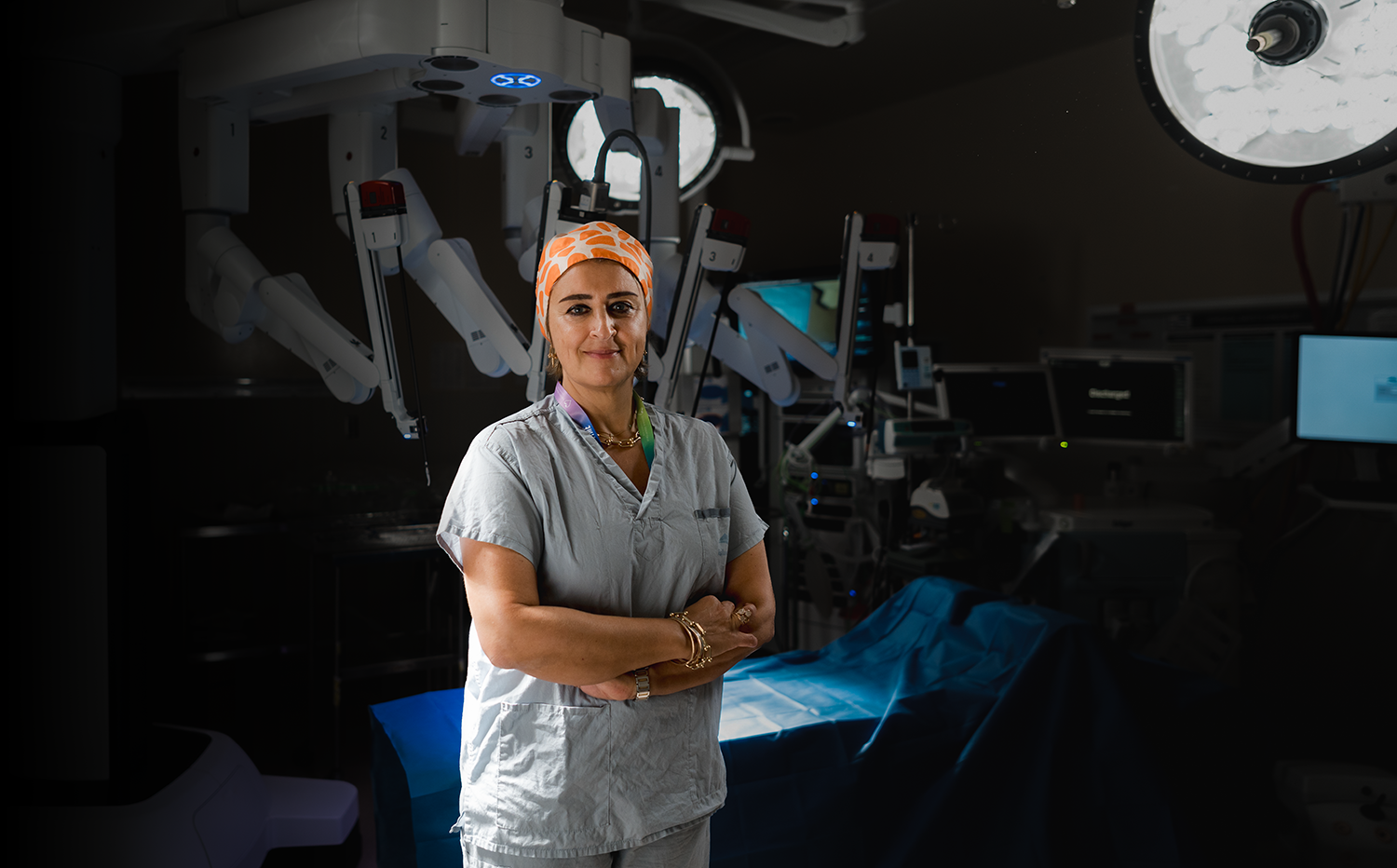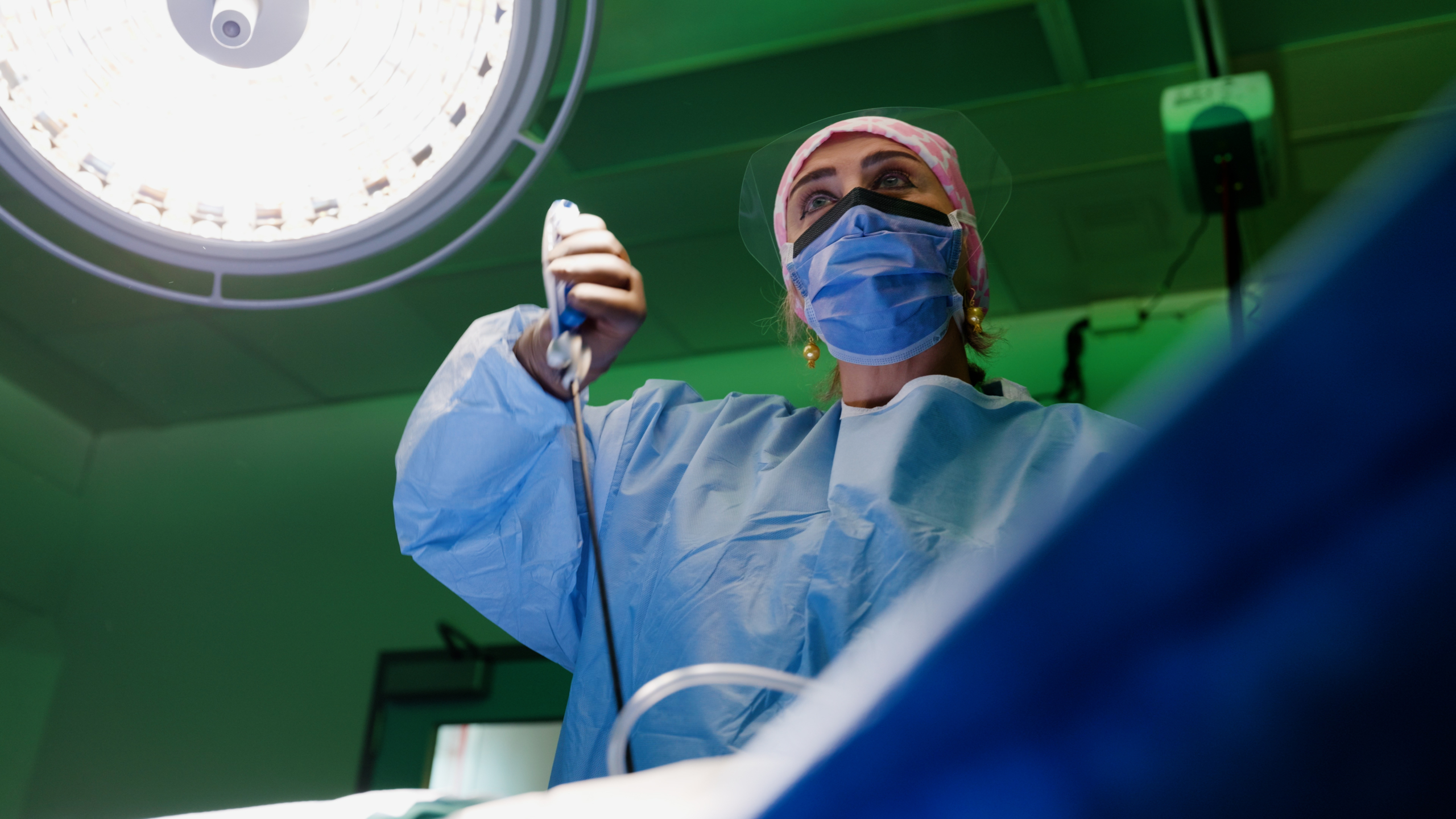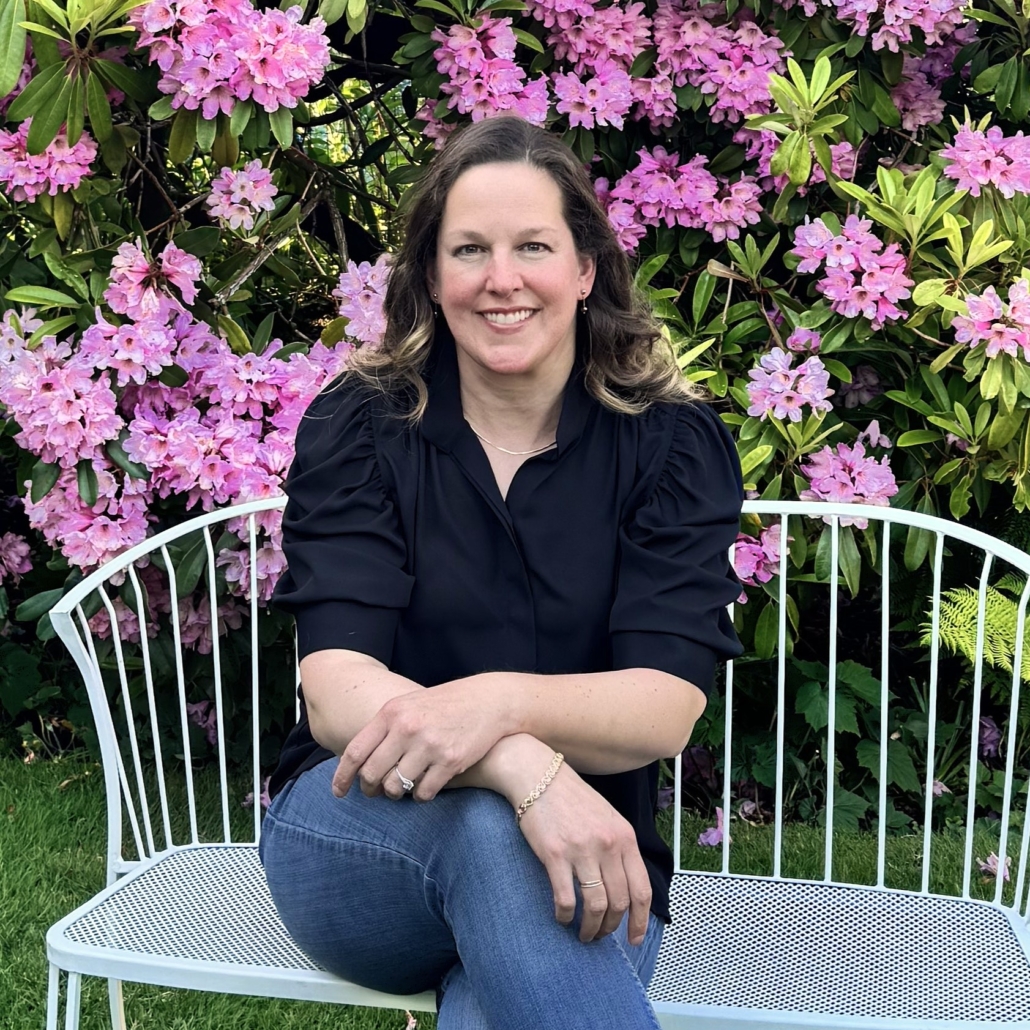 When a woman hears the words you have cancer, her entire world shifts. In that moment, she needs more than a diagnosis—she needs hope, a plan, and someone who will fight for her future. That’s why I chose to dedicate my life to gynecologic oncology, and to the women of this Island.
When a woman hears the words you have cancer, her entire world shifts. In that moment, she needs more than a diagnosis—she needs hope, a plan, and someone who will fight for her future. That’s why I chose to dedicate my life to gynecologic oncology, and to the women of this Island.
I first joined Victoria General Hospital (VGH) in 2010 to launch the first highly specialized gynecologic oncology program on the Island, and the second only in British Columbia. At the time, I was a mother of three young boys, and I was building this program from the ground up. I was the only gynecologic oncologist for the entire Island, which meant I had to be available 24/7.
Saying no wasn’t an option—not when it meant turning away someone’s mother, sister, grandmother, or friend facing a life-altering diagnosis like cervical, endometrial, or ovarian cancer. Not when it meant sending patients who were in critical need of radical hysterectomies (removal of the uterus), ovarian cancer debulking (removal of as much of the cancerous tumour as possible) or for pelvic exenteration (removal of organs within the pelvic cavity to treat advanced cancer) to the mainland. So I said yes.
And from the very beginning, this community said yes too. The very first surgical instrument placed in my hands—a gamma detection system—was funded by generous donors to the Foundation. That fact has stayed with me: donors are the driving force behind advancement in surgical care.
This truth lives in parallel with a harder one: more and more women—and increasingly younger women—are facing gynecologic cancers. Last year alone, we performed over 500 gynecologic oncology procedures at VGH. To meet this growing demand, to strive to lower our waitlists, and to continue to never settle for good enough, we too must grow.
It’s Time for Surgical Innovation is bringing transformative technology to the forefront of surgical care, including for women’s cancer care. These best-in-class instruments are not just tools, but possibilities carefully chosen to elevate what is possible in the operating room. For every mother, sister, daughter, and friend—we’re shaping a future where care is smarter, safer, and sooner.
 Among the standout technologies in this campaign is the SPY-PHI—what I now refer to as the closest thing we have to a crystal ball in the operating room. This best-in-class tool combines a fluorescent dye with a specialized camera to illuminate critical anatomical structures—such as lymph nodes, tumours, and blood vessels—with remarkable clarity. It has transformed our approach to precision surgery by allowing us to see what the naked eye cannot. One of its most impactful uses is in identifying sentinel lymph nodes—the first nodes to which cancer cells are likely to spread. By accurately targeting and removing only these nodes, we can avoid extensive dissections, reduce the need for open surgery, minimize complications, and preserve as much healthy tissue as possible. It’s a true gamechanger for our patients.
Among the standout technologies in this campaign is the SPY-PHI—what I now refer to as the closest thing we have to a crystal ball in the operating room. This best-in-class tool combines a fluorescent dye with a specialized camera to illuminate critical anatomical structures—such as lymph nodes, tumours, and blood vessels—with remarkable clarity. It has transformed our approach to precision surgery by allowing us to see what the naked eye cannot. One of its most impactful uses is in identifying sentinel lymph nodes—the first nodes to which cancer cells are likely to spread. By accurately targeting and removing only these nodes, we can avoid extensive dissections, reduce the need for open surgery, minimize complications, and preserve as much healthy tissue as possible. It’s a true gamechanger for our patients.
It is a gamechanger for our hospital system as well. Before SPY-PHI, our patients often needed multiple appointments for radioactive tracer injections and specialized imaging. Now, everything happens in one streamlined session—in the operating room while the patient is asleep. It’s faster, safer, and more efficient, delivering better care with fewer steps.
What really stands out to me is how much of a difference donor support has already made. Years ago, the gamma detection system our donors helped bring in was redefining what we could do. At the time, it was the best technology we had to locate sentinel lymph nodes—it used radioactive tracers and a probe that emitted an audible signal. I still remember listening carefully for that beep, beep, beep, trying to zero in on the lymph node to remove. It required focus, precision, and a bit of faith.
But even with our best efforts, the technology wasn’t always specific or sensitive enough. Sometimes our minimally invasive surgery would turn into open surgery as we would have to open a patient up further just to be sure we hadn’t missed a critical node. And that uncertainty weighed on us. The idea of missing a cancerous lymph node—and telling someone they were in the clear when they weren’t—was incredibly stressful. It wasn’t just a technical challenge; it was deeply personal, for us and for the people trusting us with their lives.
Looking at where we are now, with the SPY-PHI system, it’s astonishing to see how far we have progressed. And it’s thanks to the same spirit of generosity and belief in progress that brought us that first leap forward.
Now, we stand at the edge of another remarkable step forward. The Victoria Hospitals Foundation is shining a bright light on women’s health, a branch of medicine that is often overlooked, unresearched, and underfunded across the world. It takes an average of 17 years for clinical research to make its way into everyday medical practice, and women have only been included in clinical trials for the past 20 years. That’s simply not good enough.
But today, writing to all of you, I feel hopeful, and I feel proud. Proud that we’re changing that narrative. Proud that we are making a real, tangible difference.
There are now three gynecologic oncologists in Victoria with Dr. Trevor Cohen and Dr. Shaina Lee who joined us this past fall, alongside an amazing group of caregivers and leaders in women’s health. In order to leverage our expanded team, we are also working to establishing a second, fully equipped surgical suite of gynecologic oncology tools at VGH, in addition to the other new equipment being funded through the campaign. This expansion would allow two of us to operate simultaneously when the case load permits, helping to reduce wait times and deliver life-saving care more quickly, right here on the Island. As part of this vision, we’re seeking to acquire not just one, but two SPY-PHI modules.
We believe that when you offer a service as vital as gynecologic cancer surgery, it has to be done right. That means being able to care for all our patients, no matter where on the Island they live. The wait for women has simply been too long, and we’ve been doing everything we can to change that—from taking any available OR time, to running two rooms at once when possible. But to do that safely and effectively, we need to double our resources—each operating room must be fully equipped with its own set of instruments and advanced technology.
Thanks to the incredible responsiveness of our Foundation, that vision is becoming a reality. The moment we expressed the urgent need for more equipment to match this need for expanded capacity, the Foundation stepped up. It was a powerful reminder of what we can achieve together—and how committed this community is to the health and dignity of women on Vancouver Island.
What we’re building together will change lives. It will save lives. And it will ensure that every woman receives the care she deserves, right here at home.
Thank you for leaning in and supporting this essential work. It is a privilege to stand alongside you in the effort to transform women’s health on Vancouver Island.





